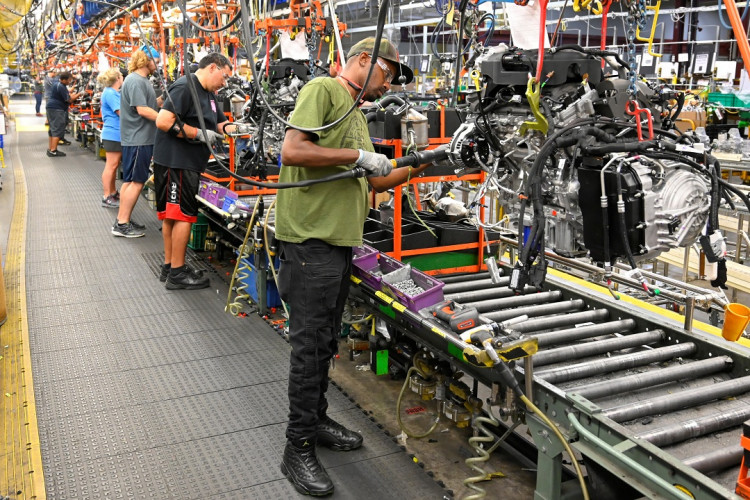Detroit's automotive giants, General Motors, Ford, and Stellantis, are grappling with a rapidly escalating strike led by the United Auto Workers (UAW) union. The strike, which began over a week ago, has now expanded to include 38 locations across 20 states, signaling a significant intensification of the labor dispute.
The UAW's aggressive stance, led by its president, Shawn Fain, has taken many by surprise. Fain, a relative newcomer to the UAW's top echelons, has been described as an "X factor" in the negotiations, introducing an element of unpredictability that neither the automakers nor the White House had anticipated. His strategy, which involves keeping the companies "guessing" and maximizing the union's leverage, has been both lauded and criticized.
In a recent press conference, Fain emphasized the union's determination, stating, "This expansion will take our fight nationwide. We will be everywhere, from California to Massachusetts. From Oregon to Florida. And we will keep going, keep organizing and keep expanding the standup strike as necessary." He further highlighted the union's readiness to challenge corporate greed and stand up for communities.
While Ford has been somewhat excluded from the rapid escalation due to its progress in negotiating a favorable contract, the company is not entirely off the hook. The UAW remains on strike against a Ford facility in Wayne, Michigan, one of the initial sites targeted by the union.
The political implications of the strike are also coming to the fore. Fain has invited President Joe Biden, a known pro-union advocate, to join the picket lines. This invitation comes amidst a backdrop of changing dynamics between the UAW and the Biden administration. While the UAW has traditionally supported Democratic politicians, Fain has been vocal in his criticism of Biden, urging him to do more for the autoworkers. This tension adds another layer of complexity to the ongoing negotiations.
The economic repercussions of the strike are already being felt. According to estimates from the Anderson Economic Group, the strike resulted in over $1 billion in losses in its first week, including $250 million in lost wages for workers. While some experts believe the strike won't push the nation into a recession, its prolonged nature could have significant economic implications.
The strategy behind the UAW's actions is becoming clearer. By targeting parts distribution centers, the union is putting pressure on car dealerships. As these centers halt operations, dealerships may soon run out of essential parts for repairs, affecting their revenue streams. This move is designed to increase pressure on GM and Stellantis to make concessions, similar to those made by Ford.
In response to the unfolding situation, Ford issued a statement emphasizing its commitment to reaching a deal that benefits its workforce while ensuring the company's future growth.
As the clock ticks, the stakes continue to rise for Detroit's Big Three, the UAW, and the broader American automotive industry. With no immediate resolution in sight, the coming days will be crucial in determining the trajectory of this historic labor dispute.






